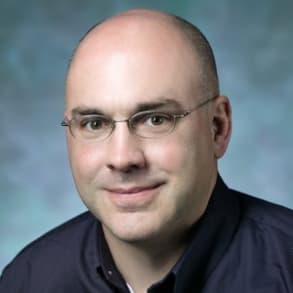STEPHEN BOWDITCH: Hi. My name is Steve Bowditch. I'm an audiologist at the listening center at Johns Hopkins. There's been some exciting news regarding hearing loss and specifically cochlear implants.
Johns Hopkins has long been an advocate for a cochlear implant technology with the Listening Center Clinic being opened in the early '90s with Dr. John NiParko. In July of this year, MED-EL Corporation, one of the companies FDA approved in the United States for cochlear implants, announced a change in the FDA candidacy criteria. In the past, cochlear implants have long been used for patients with bilateral severe to profound sensorineural hearing loss.
With this change in candidacy, we are opening up this technology to people with unilateral severe to profound sensorineural hearing loss or, in some cases, those with asymmetric sensorineural hearing loss. It's important to understand how unilateral hearing loss affects the average adult. Our bodies are designed to be symmetrical.
If you think about having two arms, two legs, two eyes, two ears, your body receives information from both left and right sides, puts them together, and creates something more. Your ears are no different. Your ears send two independent auditory streams of information to your brain, which it can then manipulate to the betterment of the person.
There are two main functions of bilateral hearing. Those include hearing speech and noise as well as localization of sound in space. Our patients with unilateral sensorineural hearing loss have difficulty holding a conversation in a restaurant or knowing where a sound is coming from in a large room.
We know that these two functions can significantly impair the quality of life of both our patient as well as their significant other. The Listening Center at Johns Hopkins has been providing cochlear implants to thousands of patients over the past two decades. We are excited that this candidacy criteria has expanded so that we can offer this technology to thousands more people and hopefully improve their quality of life.
[MUSIC PLAYING]
